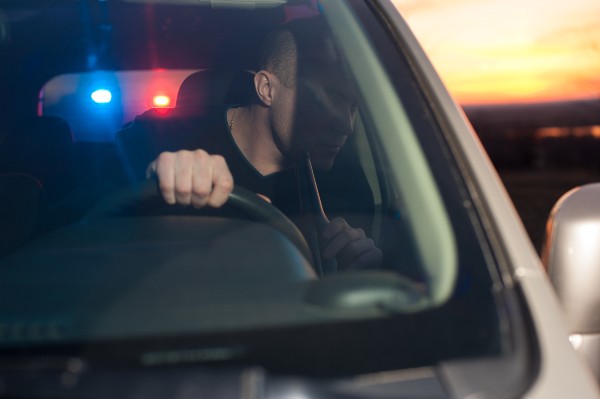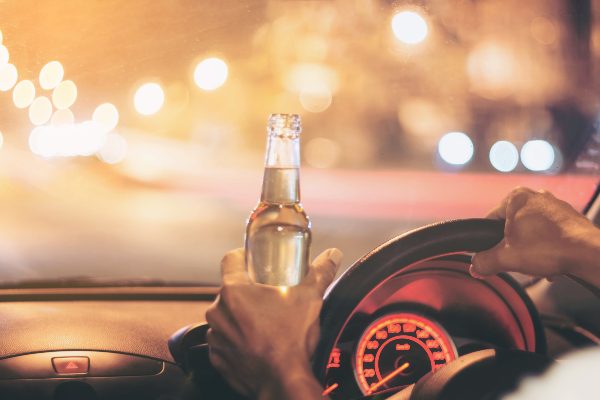
Menu

Menu
Alcohol consumption is good for relaxing and having a good time. But it isn't good when you plan to drive soon after drinking. Throughout the United States, it is a criminal offense to drink and drive, and Texas is not an exception.
This is because impaired driving is one of the leading causes of motor vehicle accidents. According to the Centers for Disease Control and Prevention, 29 people in the United States die in motor vehicle crashes that involve an alcohol-impaired driver every day. In 2016, 10,497 people died in a drunk driving accident.
The number accounted for 28% of all traffic-related deaths in the United States. With the high-risk nature of driving under the influence, it's no surprise that Texas laws allow victims to get compensation for injuries suffered. However, it's not always that an impaired driver holds the highest percentage of fault or all of it.
Our accident attorneys will shed light on when a drunk driver is not liable for a traffic collision. To learn more about the liability of an impaired fault driver, contact a car accident lawyer at Calhoun Meredith.

According to the Texas Department of Transportation, not only does driving under the influence of alcohol or drugs endanger lives, it can send the offender to jail. Under Texas law, you are legally intoxicated if your blood alcohol concentration reaches 0.08%. However, you are only breaking the law if the alcohol or drugs affect your driving.
The two affect a person's cognitive abilities and reduce their reaction time. Also, Texas has an open container law. It means that if there are open alcohol bottles or cans in a vehicle, the occupant has committed an offense even if they were not drunk. Our experienced personal injury lawyers can explain more on Texas open container laws.
Accidents caused by intoxicated drivers are as bad as distracted driving crashes, if not worse. In Texas, drunk driving caused 17,228 auto accidents and 454 fatalities in 2018. Some of these occurrences are rear-ended accidents, head-on collisions, or single-vehicle accidents.
Impaired driving also contributes to pedestrian accidents, motorcycle accidents, and bicycle accidents. If a drunk driver causes a traffic accident while drunk, they risk severely injuring another person or killing them. It opens the negligent party up to both criminal and civil lawsuits.
In a criminal lawsuit, the impaired driver faces jail time, fines, a driver's license suspension, and an installment of an ignition interlocking device. In a civil lawsuit, the person faces one of two types of actions. The first is a personal injury claim, and the second is a wrongful death lawsuit. In either of the two, the fault party would pay financial compensation to the accident victim.
Most motor vehicle collisions involving impaired drivers are high-impact crashes. The preceding is because alcohol or drugs make a person drive recklessly and beyond the speed limit. Consequently, the crash becomes either a fatal car accident or an injury collision.
Those involved would then sustain different kinds of accident injuries like broken bones. As a result of all these factors, the injured party can sue an impaired driver for compensatory damages. The latter covers both economic (actual damages) and non-economic damages in a drunk driver crash.
For the two, you can get compensated for;
If the victim dies, and the action becomes a wrongful death lawsuit, the plaintiffs will also get compensated for:
The simple direct answer to this question is YES. Drunk driving is considered negligent conduct; anyone who drives impaired breaches their duty of care to other road users. However, a mere breach is not enough to get exemplary damages (punitive damages).
For a court to grant this damage award, your drunk driving accident lawyer must prove serious, unreasonable, egregious negligence. In simpler terms, you can only get punitive damage if you can prove wanton misconduct on the part of the impaired driver.
If you successfully prove the above, the jury will award the damages. However, Texas Civil Practice and Remedies Code Section 41.008 limits the amount a jury can award. But you can still get substantial compensation.
Depending on the facts presented and the degree of negligence, the jury can ask the fault party to pay any of the two amounts (whichever one is higher):
Simply put, drivers under alcohol intoxication or drugs are not always at fault for a motor vehicle accident. There are instances when the supposed accident victim shares the fault or is entirely to blame for the crash. To determine the percentage of fault, Texas uses the comparative fault rule.

The state operates a comparative fault system. Under the Texas Civil Practice and Remedies Code Section 33.001, "a claimant may not recover damages if his percentage of responsibility is higher than 50%." The law stems from the fact that personal injury cases are based on negligence.
Thus, the law will not allow a negligent party to benefit from their negligent actions. If any of the drivers bear more than 50% fault for the collision, they will be financially liable for the total accident cost. A victim who bears, say 49% fault, will have their compensation reduced by that percentage.
In summary, the comparative fault system gives compensation on the percentage of blame. This law is fairer than the contributory negligence laws of some states. Under the contributory fault rule, you will not recover compensation if you share even just 1% of blame in the crash.
If you are not at fault in the car accident, you have to prove the other driver's negligence. In this case, you have to show that they were indeed impaired when they caused the accident. There are several ways to do this.
One is by collecting evidence at the crash site. Observe the other driver's behavior and try to get close enough to smell their breath. Also, look into the other driver's vehicle to see if there's an open container of alcohol.
Take pictures if you can, as photographic evidence is always a plus. Additionally, speak to witnesses and write down their version of events. It would help to have their information in case you need them to testify. The last and most likely the most important thing is calling the police.
The police would carry out a breathalyzer test to determine the driver's breath alcohol concentration. This is often the same as a blood alcohol concentration. The police can also ask the driver to follow a bright light or walk a straight line to test their agility.
If these tests show impairment, the police will take the driver into custody and record their BAC. The arrest record, the BAC test, and the criminal charges will serve as evidence in your civil action. A drunk driving accident attorney can help you gather evidence.
Generally, no auto insurance coverage pays for accidents caused by an intentional act. Most automobile insurance companies argue that drinking and driving is intentional conduct. This argument, if accepted, allows the company to disclaim the request for damages.
Texas law stipulates that drivers must have auto insurance. A driver must show that they can pay for the damages in an accident they caused. This is why drivers take out liability insurance. It pays for repairing or replacing the other driver's car, other damaged properties, and medical expenses.
The insurance policy options in Texas include:
In summary, insurance pays for a drunk driving accident when the fault party is compensating the victim. It means that you can file an insurance claim against the insurance coverage of the fault driver. The coverage will pay for all your losses, including emotional distress damages.
The only thing it will not pay for is punitive damages. This is because only a court of law can award exemplary damages. Find out more about this from an auto accident attorney.
If the drunk driver does not have insurance coverage, you can pay for your losses using uninsured motorist coverage if you have one. If the driver has coverage, but it is not enough to cover your losses, you can use an underinsured motorist's coverage if you have one.
When you have none of the two, you have to pay for your losses out-of-pocket. To recover the money, you have to file a personal injury lawsuit against the drunk driver. Here, the fault party will pay out-of-pocket. However, if they are not solvent, you might not get any compensation.

A car accident, whether caused by a drunk driver or a distracted driver, has the same consequences. There are property damages, injuries, and at worst, death. At Calhoun Meredith, our lawyers understand how difficult this can be and are willing to help. We will represent your interest until we get you the maximum compensation. Contact us today for a free case review.